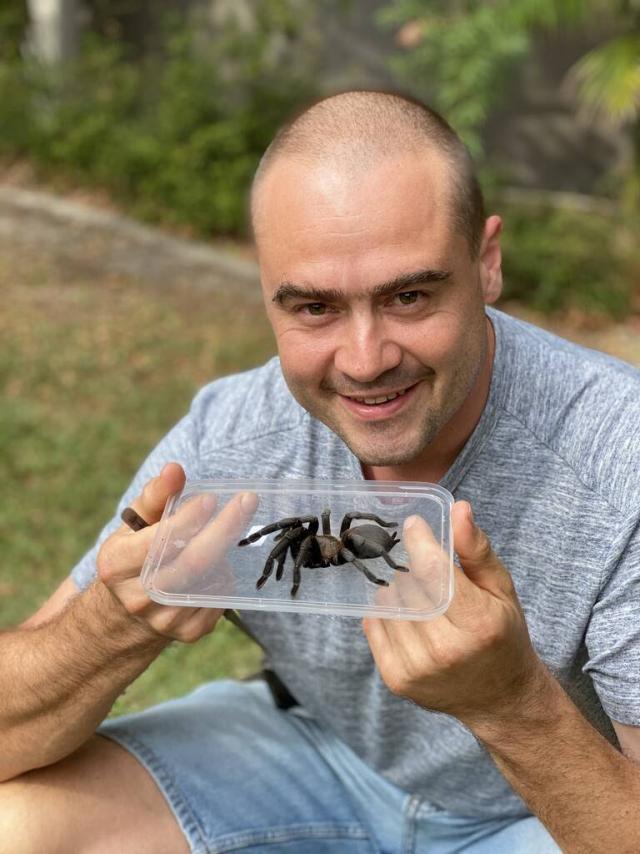
A beehive lockdown with a ban on all hive movements in Queensland, NSW and Victoria, is a necessary immediate response to the arrival in Australia of the invasive and destructive varroa mite pest, an academic has warned.
He recognises this would be a big income hit for beekeepers, but would only be temporary, as against the much greater cost and permanence of the problem, should the mite become endemic in Australia.
Meanwhile, Professor Voker Herzig says he is now working on a longer term solution, involving the introduction of bees to new and unlikely friends – spiders and scorpions.
The University of the Sunshine Coast associate professor is researching the potential of spider and scorpion venoms to save Australia’s honeybees from varroa and the small hive beetle.
“Hundreds of hives have been destroyed, and Queensland, Victoria and South Australia have banned bees, hives and honey products from New South Wales in a bid to contain the Varroa destructor mite, now detected for the first time in Australia,“ he said last week.
“Despite the grim outlook, I think it is not all lost yet, if we act swift and hard.
“Now, halfway into my project, and after screening over 240 arachnid venoms against varroa mites, we have four lead molecules that we are currently characterising to identify the best possible candidate,” he said.
“Unfortunately, these will take several more years to develop, so they can’t be applied to control the present outbreak in New South Wales.”
Prof Herzig said Australia was previously the only country to escape the varroa destructor, a parasitic mite which causes colony collapse.
“So far, no country to which Varroa destructor has spread previously has been able to successfully eradicate them,” he said.
“It just takes a single breach of the current exclusion zones, in combination with beehives being transported across Australia for pollination services, and we will soon end up with an uncontrollable spread of the varroa mites,” he said.
As a precautionary measure, he recommends immediately prohibiting any movement of beehives within Queensland, NSW and Victoria.
“Once the mites have spread to any of the feral honeybee colonies, there will be no means of monitoring or controlling their further spread anymore, which would make eradication practically impossible,” he said.
“I am aware that such hard measures will cause a significant economic hit to the bee industry, but it would only be for a limited time.
“In contrast, the associated economic impact would pale in comparison to the many millions of dollars it will cost the Australian bee-industry annually once the mites have become endemic, because then there will be no going back.”
Concerned that it was a matter of “when and not if” Varroa destructor would make it into Australia, Prof Herzig first applied for funding in 2015 to research novel varroa mite treatments.
In 2020, he received an Australian Research Council Future Fellowship to support his current research.
His comments follow the recent Valley Bees open day, where varroa mite was a major topic.






